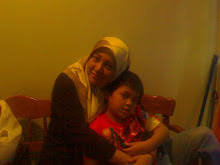What is the neonatal unit?
The neonatal unit provides expert, around-the-clock care for newborn babies who are ill or born prematurely.
NICU~Neonatal Intensive Care Unit (for the most seriously ill babies)
SCBU~Special Care Baby Unit (for babies who are not critically ill but still need complex care ie. catching up on growth and development after a premature birth, or those who are getting better after more complex treatment)
Why does my baby need to be here?
Like all newborns, premature babies have basic needs:
To be kept warm
To be given fluids and nourishment
Premature babies need extra help. For example, its harder for them to stay warm because their bodies aren't fully developed yet and they can't regulate their temperature. A special cot (an incubator) can help with this. Babies who are too small, weak or immature to feed can receive fluids and a special nutrition mixture through a drip. Or they might need a tube that carries milk into their stomachs ( through OGT- oral gastro tube feeding via syringes).
Premature babies also need extra monitoring, treatment and care because their bodies are not fully developed yet. They are vulnerable and can have serious health problems. Some of the common problems associated with premature birth are:
- Breathing problems/difficulties
- Bleeding in the brain
- Heart problems
- Gut and digestive disorder
- Eye problem ie ROP (Retinopathy of Prematurity)
- Neonatal jaundice
- Anaemia
- Infections
On the neonatal unit, a skilled team from different professions will care for your baby. Some of the people you may meet include:
- Staff and specialist neonatal nurses
- The senior nurse in charge of the unit (the sister or unit manager)
- Consultant paediatrician or neonatologist
- Other specialist doctors such as surgeons
- Physiotherapist
- Radiographers who take x-rays and scans
- Dieticians who advice on nutrition
- Pharmacists
- Nursery nurses
- A social worker to help you with family issues and support that might be needed after your babies goes home.
What are all those machines and tubes for?
It can be scary to see your baby attached to all sorts of machines. It can make you feel that you will never be close to her. Be reassured that as your baby gets stronger, she will need fewer machines and it will be easier for you to hold her and care for her. Some of these machines also have loud bleeping alarms and it can be frightening when they go off. Don't hesitate to ask the nurses if you don't know what an alarm means, and whether it's anything serious.
Here is some equipment you could see in a neonatal unit:
Baby warmers
Incubator: A special cot that keeps your baby warm and sometimes controls the moisture level (humidity) around her. Some incubators have lids, some don't. Some have overhead heaters.
Monitors
Vital signs monitors: Various machines might be used to keep tract of your baby's heart beat, breathing rate, blood pressure and temperature. Wires from the monitor are stuck to your baby's chest with pads (electrodes). The monitor alarms can sound off quite often.
Blood saturation monitor: This measures how much oxygen is in your baby's blood. It might be strapped to her foot or hand (sensor).
Help with breathing
Ventilator: If your baby is very premature or weak, she might need a ventilator to help her lungs do the work of breathing. This machine pushes air into the lungs, through a tube that has been passes into the windpipe.
CPAP (continous positive airway pressure): Some babies can breathe on their own with help from the CPAP machine. It gently inflates the lungs and helps keep them open. Air goes in through a mask or via tubes in your baby's nose (called a nasal cannula)
Tubes
Drips, lines and cathethers: Tubes are placed in your baby's veins to deliver fluids, medicines or nutrition. Tubes are placed in her arteries to test her blood pressure or oxygen levels (through radial line or umbilical arterial line/catheter)
Infusion pump: This machine makes sure that medicines and fluids are delivered into your baby's veins at the right rate and speed eg. 15 mls over 1 hour
Feeding (gastric) tube: Babies who are well enough to receive milk are fed through a tube into their stomach. The tube goes in through their mouth or nose.
Special lights
Phototherapy lights: Many newborns have jaundice. Their skin turns yellow because a substance called bilirubin builds up and cannot be excreted fast enough. A special light helps your baby to convert the bilirubin to a harmless substances until she can do this for herself. Your baby is placed under the lights and wears a mask to protect her eyes.
How can I help my baby while she is in the unit?
Your premature baby needs all the things that other babies need from their parents. Your touch, your voice and your presence all help a great deal. There are many things you can do to help your baby while she is in the neonatal unit:
Kangaroo care:
Once your baby is strong enough, one very good way to help her development is called kangaroo care. You simply hold your baby against your chest. Kangaroo care is soothing for your baby, and can improve her health and development.
Feed your baby:
As your baby gets stronger you can start feeding her, too. If you're keen to breastfeed let the nurses know and they should make every effort to help you with this. They should help you to express your milk in the early days before she is strong enough to breatfeed. The expressed milk will be stored and used to feed her when she is ready.
Giving your premature baby breast milk can stimulate her immune system and help her to fight illness. It's not always easy to breastfeed when your baby is premature, for all sorts of reasons, and especially when you are stressed and worried about your baby. So do make sure that you get lots of help and support.
Do the usual baby care tasks:
It may take some time, but as your baby gets stronger you can start doing all those ordinary things that most parents take for granted. like changing her nappy and giving her a bath.
Speak up for your baby:
Like all parents, sometimes you have to speak up for your child and be their advocate. If you think something is wrong, trust your instincts. Talk to the staff. Don't be afraid to ask questions, voice your worries or seek improvements.
Look after yourself:
The most important thing you can do for your baby is look after yourself. Get some sleep, eat healthy food, and take a break from it all. It's exhausting having a baby in the neonatal unit, especially if you have other children or if you're recovering from a difficult birth. It's natural to put your baby first but don't forget to be good to yourself, too.
When can my baby come home?
It's hard to say because all babies are different. It depends on their condition. Babies who are smaller and those born sooner tend to have more problems. Generally, a premature baby who is otherwise well usually stays in the neonatal unit until around the date she was due to be born (usually when the baby reached 1800 grams and the corrected age is 36 weeker). If your baby is feeding well and gaining weight with no other problems, she may be able to go home earlier than this.

Infusion

























































0 Responses to "The Neonatology Unit~ NICU/SCBU"
Post a Comment